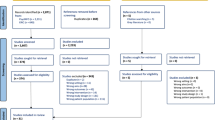Abstract
Forty-two 7th-grade students who had previously been found to react adversely to test situations were individually assessed with a battery of intellectual, cognitive, and affective measures, both prior and subsequent to a remedial coping-skill-building program. Nineteen of these test-vulnerable students were also considered to be at risk for school failure because of previous problems in school. The remaining 23, despite their vulnerability to tests, were normally successful in school. Two coping skills training programs were taught to 12 of the at-risk and 12 of the otherwise normal students in this test-vulnerable sample; the remaining 18 students served as controls. One training program was highly structured and included instruction in the use of a prescribed problem-solving sequence, relaxation, and verbal self-instruction. The other program encouraged the students to generate their own coping strategies. After training, students in both treatment groups showed a significant increase in the number and improvement in the quality of coping set and strategies generated, increased performance on the WISC-R Coding and Mazes subtests, and a tendency toward heightened resistance to test-stress and higher grades. Differences between the at-risk and normal students and between the two treatment programs are reported and discussed. Results are discussed in terms of the remedial potential of a school-based intervention in the alleviation of stress-depressed school performance.
Similar content being viewed by others
References
Anderson, W. The relative effects of the Frostig program, corrective reading instruction, and attention upon the reading skills of corrective readers with visual perceptual difficulties.Journal of School Psychology 1977,10 387–395.
D'Zurilla, T., & Goldfried, M. Problem-solving and behavior modification.Journal of Abnormal Psychology 1971,78 107–126.
Goldfried, M., Linehan, M., & Smith, J. Reduction of test anxiety through cognitive restructuring.Journal of Consulting and Clinical Psychology 1978,46 32–39.
Goldfried, M., & Trier, C. Effectiveness of relaxation as an active coping skill.Journal of Abnormal Psychology 1974,83 348–355.
Gottsman, R., Belmont, I., & Kaminer, R. Admission and follow-up status of reading disabled children referred in a medical clinic.Journal of Learning Disabilities 1975,8, 10 43–51.
Hussian, K., & Lawrence, P. The reduction of test, state, and trait anxiety by test-specific and generalized stress inoculation training.Cognitive Therapy and Research 1978,2 25–38.
Jastak, J., & Jastak, S.Wide Range Achievement Test (WRAT) Wilmington, Delaware: Grudance Association, 1965.
Meichenbaum, D.Cognitive-behavior modification: An integrative approach. New York: Plenum, 1977.
Robbins, M. Neurological organization and reading.Reading Research Quarterly 1966,2 57–58.
Ross, A.Psychological aspects of learning disabilities. New York: McGraw-Hill, 1976.
Silverberg, N., Iverson, M., & Goins, J. Which remedial reading method works best?Journal of Learning Disabilities 1973,6 547–556.
Spiegler, M., Cooley, E., Marshall, G., Prince, H., Puckett, S., & Slenazy, J. A self-control vs. a counter-conditioning paradigm for systematic desensitization.Journal of Counseling Psychology 1976,23 83–86.
Stevens, R.The failure disabled student: Three studies of the adolescent at-risk for school failure and a suggested remedial model. Unpublished doctoral dissertation, McGill University, 1979.
Wechsler, D.Manual for the Wechsler Intelligence Scale for Children Revised. New York: Psychological Corporation, 1974.
Author information
Authors and Affiliations
Additional information
This research was supported by a grant from McGill University and carried out with the cooperation of the Baldwin-Cartier School Commission, Pointe Claire, Quebec, both of which are gratefully acknowledged.
Rights and permissions
About this article
Cite this article
Stevens, R., Pihl, R.O. Learning to cope with school: A study of the effects of a coping skill training program with test-vulnerable 7th-grade students. Cogn Ther Res 7, 155–158 (1983). https://doi.org/10.1007/BF01190069
Issue Date:
DOI: https://doi.org/10.1007/BF01190069




